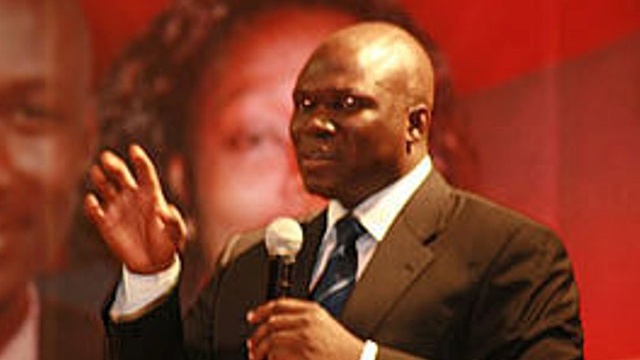Dr. Reuben Abati, a former Special Adviser (Media and Publicity) to President Goodluck Jonathan, has said the poor working condition of journalists make them vulnerable.
Abati, in a speech on Tuesday in Ibadan, Oyo State at an information summit organised by the Oyo State Ministry of Information, particularly decried a situation in which some journalists were not paid salaries and other basic entitlements.
He challenged owners of media outfits to ensure good working conditions for journalists to make them independent in their news judgements.
According to him, poorly paid journalists that arrive assignments with empty stomach were vulnerable to being influenced, which could affect the quality of news content.
While advocating a sustainable partnership between government and journalists, he said there were lots of grey areas that must be considered, “especially since government officials like popularity and want only positive things reported about them”.
Abati said: “They (government officials) imagine that journalists must do their bidding; they go all out to ensure that, which tasks the journalists’ capacity for independent news judgement.”
Abati, a keynote speaker at the two-day seminar with the theme: “Managing Information and Communications: The Catalyst for Sustainable Development,” urged special attention to journalists welfare so as to promote professionalism.
Felix Adenaike, a former Managing Director, Sketch Press Limited, in his speech, said the most important aspect of the summit was the implementation of the outcome.
Adenaike said the implementation would fortify information dissemination processes and avoid distorted information and rumour mongering.
In a remark, Mallam Mohammed Bello, the Zonal Director, Federal Radio Corporation of Nigeria, Ibadan, described the summit as a commendable step toward advocating credibility, accuracy and integrity.
Bello said: “There is no problem about facilitating partnership between government and professional journalists, but I doubt if our leaders are transparent and willing to submit to scrutiny.”
In her remarks, Olajumoke Coker, the Zonal Director, Nigeria Broadcasting Commission, said the broadcast stations had important roles to play toward ensuring a united Nigeria.
She urged radio and television outfits to ensure that their programmes were in line with national goals and the nation’s broadcasting codes.
Coker said: “Broadcasters should ensure that their content is designed to inject the culture of peaceful co-existence from the cradle.
“On our part at the NBC, we will continue to play our role as a regulator by upholding standard at all times, irrespective of religion, ethnicity and political leanings.”
Adewunmi Faniran, the Chairman, Nigeria Union of Journalists, Oyo State Council, called on government to make the welfare of media professionals a priority.
Faniran, who was represented by Bola Ogunlayi, Oyo NUJ Secretary, called on the state government to review the sack of media professionals at the Broadcasting Corporation of Oyo State.
Earlier, Toye Arulogun, the State Commissioner for Information, Cuture and Tourism, had said the summit was organised to broaden communication processes so as to rid the society of rumour mongering and distorted information.
Trending
- Students caught bullying mates on camera in Abuja school + Videos, photos
- Student caught bullying mate on camera in Abuja school + Video, photos
- Alake commends Nasarawa for securing mining sites
- TCN towers vandalised along Jos-Gombe 330KV transmission line
- Atiku visits suspended Sen. Ningi, says National Assembly, others must be strengthened
- Jonathan backs state police, says commercial kidnapping’ started in 2006 in Niger Delta
- Babcock University provides details on Law Professor shot dead at relaxation centre
- Chamber speaks on report Nigerians denied access to Chinese supermarket

